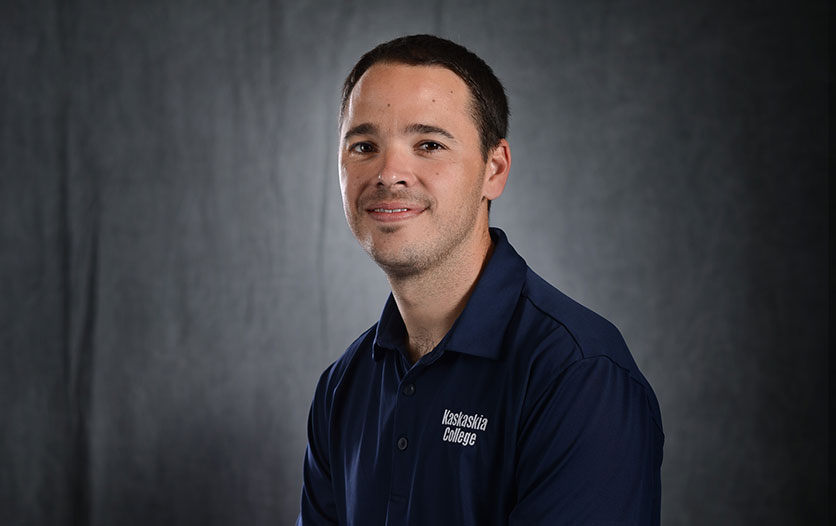Paramedicine
Career & Technical Certificate
Modes of Instruction
Click here to learn more about the modes of instruction offered at Kaskaskia College.
Kaskaskia College's Paramedicine program prepares you for a career where you are part of a life-saving team. You will learn advanced techniques of emergency care, stabilization, and immobilization of victims of illness and injury. The techniques of emergency care include but are not limited to assessment, detailed physical examination, recognition and documentation of signs and symptoms of illness and injury, critical thinking and diagnosis intervention, and the evaluation of the interventions.
Through the performance of patient assessments and the provision of medical care, the paramedic's goal is to prevent and reduce mortality and morbidity due to illness and injury. Paramedics primarily provide care to emergency patients in an out-of-hospital setting.
The Goal of the Paramedicine program is: To prepare competent entry-level Paramedics in the cognitive (knowledge), psychomotor (skills), and affective (behavior) learning domains with or without exit points at the Advanced Emergency Medical Technician and/or Emergency Medical Technician, and/or Emergency Medical Responder levels.
The Paramedicine program prepares students to pass the National Registry of EMTs Paramedic certification examination and practice as Registered Paramedics.
CAAHEP Accredited Paramedic Programs and CoAEMSP Letter of Review (LoR) Programs track and report outcome measures annually to the Committee on Accreditation for the Emergency Medical Services Professions (CoAEMSP). The most current CoAEMSP Annual Report was for the calendar year 2022.
The 2022 success rate for the National Registry of EMT Paramedic Cognitive exam was 100%.
The 2022 positive placement rate for graduates was 100%. Positive placement is defined by the CoAEMSP as being employed full or part-time in a related field and/or continuing their education and/or serving in the military. Positive placement is measured at the completion of the program.
The 2022 retention rate was 25%.
No graduates have tested during the 2023 reporting year.
Clinical Experience
During the program, in planned semesters, each student is prepared for career opportunities in the field of Emergency Medical Services (EMS), including, but not limited to, urban and rural ambulance services and/or fire departments; hospital Emergency Room Services personnel; industrial emergency services personnel; clinical personnel; and positions overseas.
What You Can Do
- Paramedic/EMT
- Paramedic-First Responder
Program Details
PARM_0500_CERT
Paramedicine Faculty

Cynthia Field
EMT/Paramedicine Program Facilitator
Travis Field
Healthcare Simulation Lab Technician/AHA CoordinatorContact Us
Admissions
Phone | 618-545-3040
Fax | 618-545-3393
- Main Campus
- Health and Business, HB 100

All students must submit an Admission Worksheet for the Paramedicine Program. All students accepted into the AAS Degree or Certificate Paramedicine Program must have and maintain a current Illinois EMT, A-EMT or EMT-I license. All program participants shall maintain their qualifying license throughout completion of the program and successful completion of the licensure examination.
Students must successfully complete both courses with a grade of "C" or better.
Students enrolling in the AAS Degree or Certificate Paramedicine Program should be aware that clinical facilities require criminal background checks and drug screening of those involved in any aspect of patient care. Based on this, Kaskaskia College will require background checks and drug screening upon entry into the program and prior to assignment in clinical and internship settings. Students will not be allowed to participate in clinical courses when their background check or drug screen makes them ineligible for the work to be performed. The cost of such screening will be included in program fees.
Additionally, clinical facilities require proof of vaccinations of those involved in any aspect of patient care. Based on this, Kaskaskia College will require proof of vaccinations upon entry into the program and prior to assignment in clinical and internship settings. These requirements will be communicated to applicants when provisionally accepted into the program.
Students who successfully complete all required courses and meet eligibility requirements outlined by the Illinois Department of Health, National Registry of Emergency Medical Technicians, and Committee on Accreditation of Educational Programs for the Emergency Medical Services Professions will be eligible to sit for National Registry Paramedic certification testing.
If, in the opinion of the program coordinator and/or director, any student's work, conduct or health might have a detrimental effect on patients or personnel within a clinical agency, said student may be withdrawn from the clinical setting.
The Kaskaskia College Paramedicine Program is accredited by the Commission on Accreditation of Allied Health Education Programs (www.caahep.org) upon the recommendation of the Committee on Accreditation of Educational Programs for the Emergency Medical Services Professions (CoAEMSP).